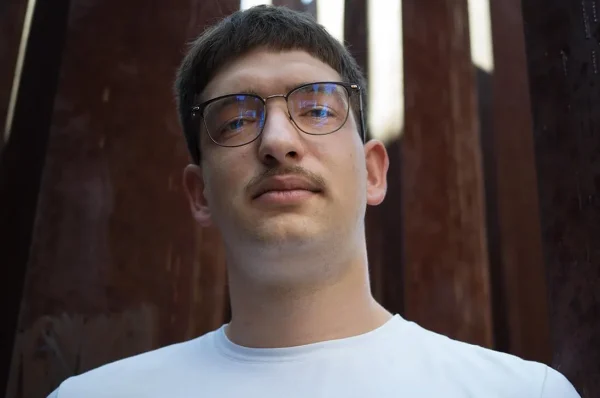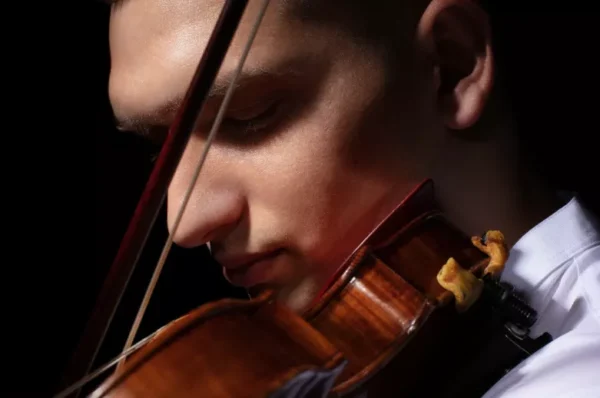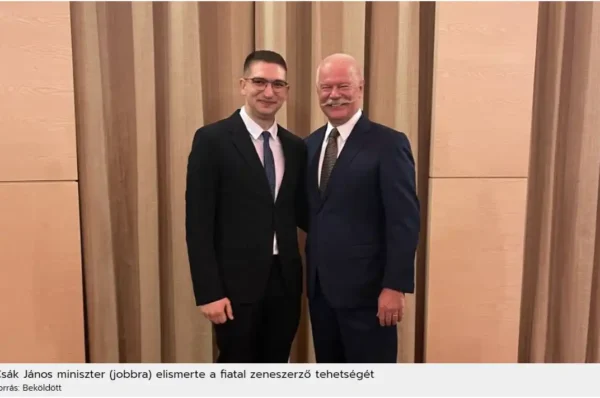– Interview with composer Patrik Oláh, winner of the competition of the Capital City and the BFZ
We talked with Oláh Patrik Junior Príma and Andor Neszlényi award-winning composer about his victory in the composer competition for the one hundred and fiftieth anniversary of the birth of Budapest, his career plans, popularity and Roma identity.

Patrik Oláh (photo: Géza Oravecz)
You won the joint composer competition of the Budapest Festival Orchestra (BFZ) and Budapest City Municipality;The BFZ will present his work entitled Fusion, the Budapest overture, on September 2, 2023, at Hősök Square. What does it mean to a quarter-century-old young man to greet a hundred-and-fifty-year-old capital like this?
If I’m counting correctly, he’s six times my age, but I haven’t thought about that yet.(Laughs.) The most important and shocking thing about this for me is that my piece is mentioned together with the works written for the same celebration in 1923, more specifically Béla Bartók’s Dance Suite, Zoltán Kodály’s Psalmus Hungaricus and Ernő Dohnányi’s Festive Overture. It’s a big deal to me, it’s like comparing a soccer player to Cristiano Ronaldo. To achieve this at such a young age is unfathomable.
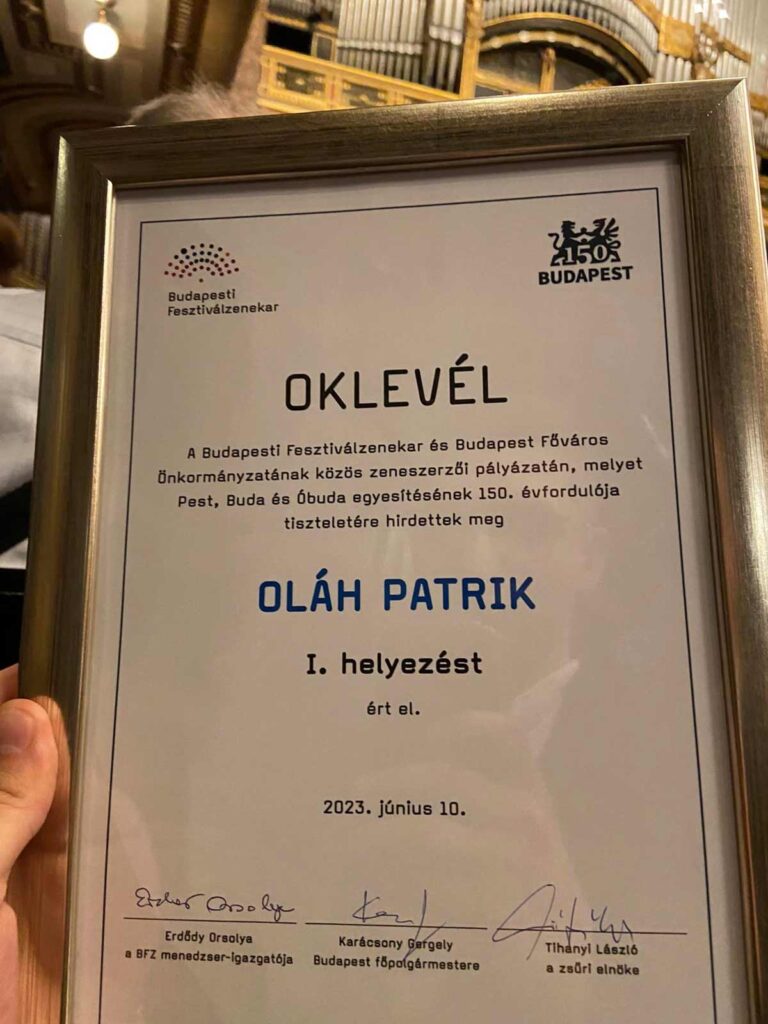
Source: Patrik Oláh’s Facebook page
The second and third place in the competition are older than you. As if this fits into the line of having life events happen to you at a very young age that you thought would only come later.
Yes. This is possible once in a composer’s life. Now the capital is celebrating its 150th anniversary, the next jubilee will be when I turn 75.
It reminds me of anniversaries: now, in 2023, the Budapest 150 event series is taking place, last year he was asked to compose a twenty-minute orchestral piece in connection with the centenary of the declaration of his birthplace, Salgótarján, as a city. Are you looking for a city that celebrates its bicentenary next year?
Now I could not say exactly which city was founded in 1824.(Laughs.) That piece in Salgótarján was ultimately not realized because conflicts of interest arose during the tender. I started working on it, then they told me that there would be no money for it and they said: they would be very happy if I could do it for free. To this I said that if someone else works completely free for three months, then I will too. It’s simply not possible to work on something for free for three months, you can’t fast until then.
From this point of view, it is favorable that this victory also brought you a cash reward of two million Forints. What will you spend this amount on?
I would like to study in Hamburg for half a year from September, with Erasmus, so I will need most of this money there.
Composing music does not seem like a very profitable occupation. Is it really so?
First of all, I have to state: it will not pay off financially, as much work as you have to put into composing music, it will result in maximum success. Making a living from composing is an insurmountable task, almost impossible, especially when you’re young, because everyone wants everything for free. One of the disadvantages of freelancing is that there may be a gig every day for two months, but then there is nothing for two months. And the same is the case with composing: there may be ten requests for a month, of which you have to say back, but after that there are no requests for six months.
Or there will be a Covid epidemic, and there will be nothing for a year and a half.
Yes. Even during Covid, what I had to write was planned a year to a year and a half in advance, and one by one they were all cancelled. Only the International Eucharistic Congress took place later, with a replacement, where my mass entitled Le Devleske (To God) in Lovári was presented.
And what solution did you find to ensure your livelihood? Have you grown some new existential legs that generate income, or are you putting what you have aside for when you don’t? Maybe someone supports it?
One must always make a living somehow; even the biggest ones were in short supply, unfortunately. I get support from the family, and the hacks, invitations and private lessons always solve the problems. Years ago I started a company and tried to work with it in the insurance business. I was doing really well with it, only to find out that it wasn’t for me.

Photo: Géza Oravecz
I imagine that it is difficult to cultivate both, creative composition and dry dealing with numbers.
Yes, and it takes a lot of time. It’s also a full-time job. And composing, I think, is not one, but two full-time jobs.
The title of the Budapest festival orchestra’s application is Fusion, which we mean: fusion, that is, a reference to the unification of the city, but what does the “off-white” sign, meaning off-white, that he chose for the entry symbolize?
The story was that a signal had to be given quickly and I couldn’t think of anything. This came first. I just had an Off-White brand sweater on and I thought this would be good. However, I quickly looked to see if it meant something that would be unpleasant. By the way, choosing a mark is a very difficult task, because the mark definitely influences the jury a little.
I would have thought that “off-white” was a reference to the slightly yellowed, black-and-white photographs showing the life of the capital in the last century.
It could have been, but it wasn’t. One of my friends thought that I used “off-white” to show that I was half-gypsy. But I had no such intention.(Laughs.)
Authentic gypsy music appears in almost all of his works. Is it instinctive or a kind of cultural mission?
Also. I think a composer’s mission can be whatever is instinctive to him. I feel that Gypsy music can only be included in classical music in a way that is self-identified with the author, and I can identify with that. In addition, my choice is also justified by the fact that in the twentieth century Gypsy music was not much discussed in classical music circles.
I believe it is not an easy road. On the one hand, in terms of the receiving environment, and on the other hand, because innovators always have a more difficult role.
I think that Gypsy music does not have its true place in Hungary, because its reception is not favorable. In Germany, for example, they really like it and see it as a curiosity. Unfortunately, in our country, many people view Gypsy in a pejorative way. Of course, not everyone, and I must also say that many times they are quite right to think badly of a particular individual. For example, not many people see that I am a gypsy. However, when I say my name, I feel the difference from then on.
Did you have any disadvantages in your personal life or in the music field due to your origin?
Not as a musician, but plenty in school settings. I say this in such a way that it doesn’t even look like I’m a gypsy. How many more disadvantages can arise from this for those who are not even artists and on whom it is visible! I was the only gypsy in the six-grade high school I attended, and there were a total of three gypsies in the school, and the disadvantage was felt there.
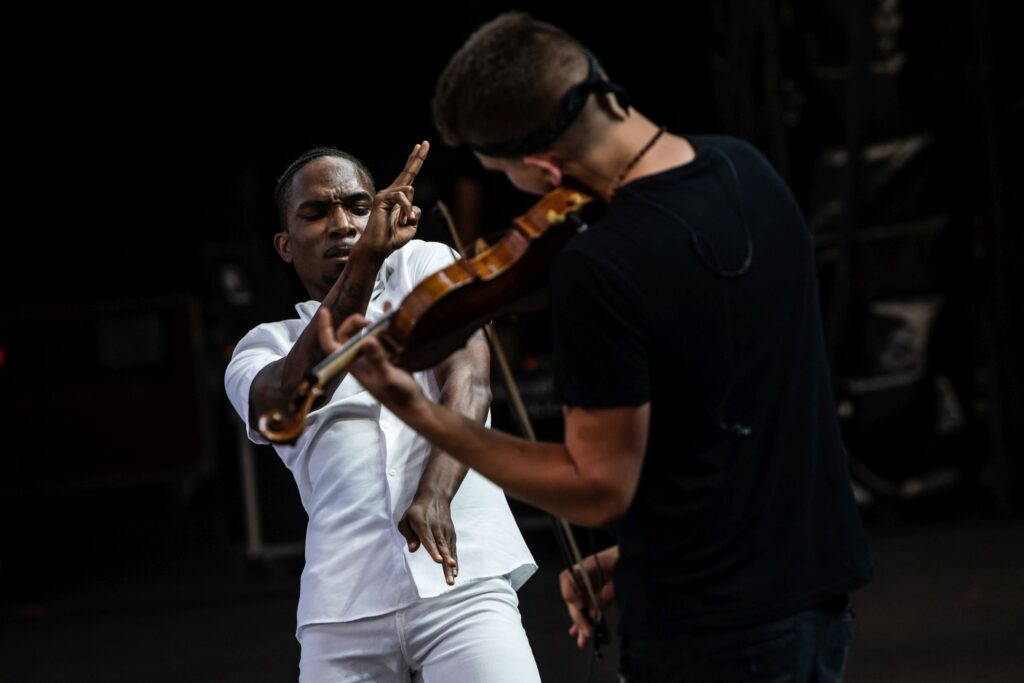
Photo: Péter Kalló
Is self-management more difficult as a Roma musician?
It is definitely much more difficult here in Hungary. I expect that maybe it will be easier abroad. Recently, for example, my mass was performed in Germany, which cannot be scheduled in Hungary. We introduced it almost two years ago, and it hasn’t been heard at home since then. A friend of mine sent it to Germany and it was performed immediately. Probably the reason is that it is difficult for concert organizers to get involved. They are afraid of how he will be received, because many people do not like the Roma. I hope this will change, because I would love to listen to it in a concert hall – half of the piece was destroyed by the acoustics in the Szent István Basilica. Even so, it was effective, which was surprising to me, but its depths did not surface, I feel.
Are you supposed to imagine that you are marrying this play and trying to get out of putting it on the show? Or do you have a manager to help you with this?
Unfortunately, I don’t have a manager, but I feel like it would be good. I’ve tried looking for managers before, but they weren’t very receptive. It would be easier, for example, if someone could discuss for me how much I would pay for a piece. Then I don’t have to worry about whether I’m saying too much or too little. I also have current experience with this. In Germany, they asked how much I would transcribe the mass. In Hungary, it usually happens that it has to be re-arranged for free, and you have to be happy if it is played at all. I said that in Hungary I would ask for a very symbolic amount, but since it is in euros, it should be double. Even so, they laughed at how low my price was, adding that I would not undertake anything in Germany for four times the amount.
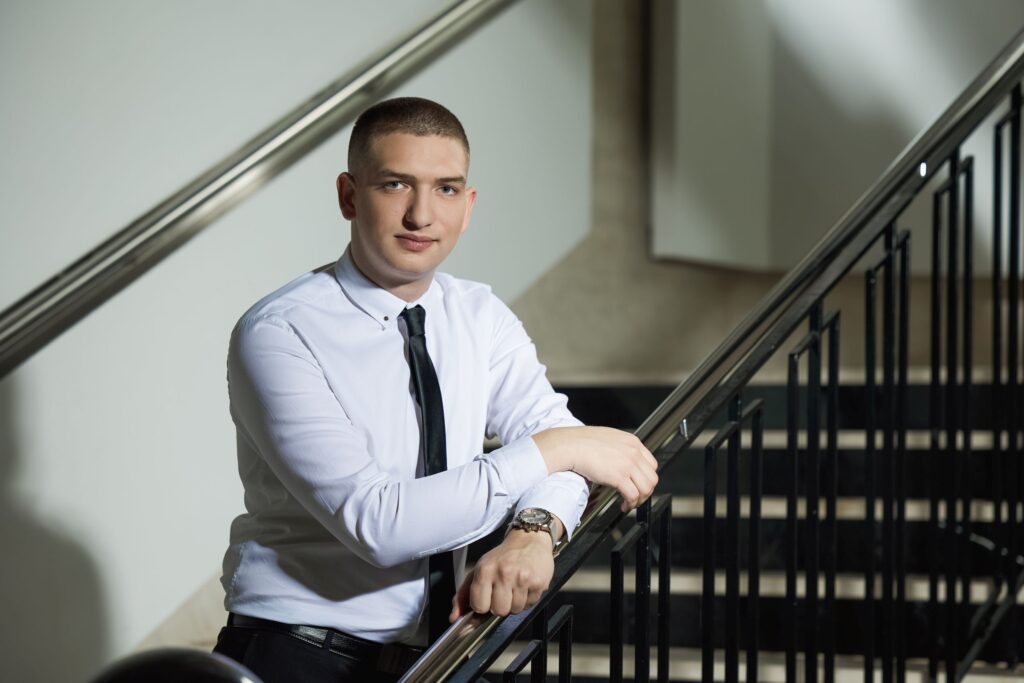
Photo: Kondella Misi Photography
By bringing gypsy music and classical music closer together, do you also want to reduce social differences?
Yes, definitely. Basically, the motto of the mass was that we are one regardless of origin and religion.
How nice it would be if that were the case.
If so. Yes. Now, it is primarily the inclusion of gypsy music that is important to me, and thus drawing attention to gypsyism. Then, when that is already there, in ten or twenty years or who knows how many years from now, the next plan would be to represent everyone in this way in my art, and thus announce that we are really one.
Are you inspired by successful domestic Roma performers?
Everyone who has achieved something inspires, even those who have not achieved anything. (Laughs.) I try to learn from everything. But, for example, Roby Lakatos, Ferenc Snétberger, Aladár Rácz and György Cziffra inspire me a lot. They have had serious careers, and I want something like that.
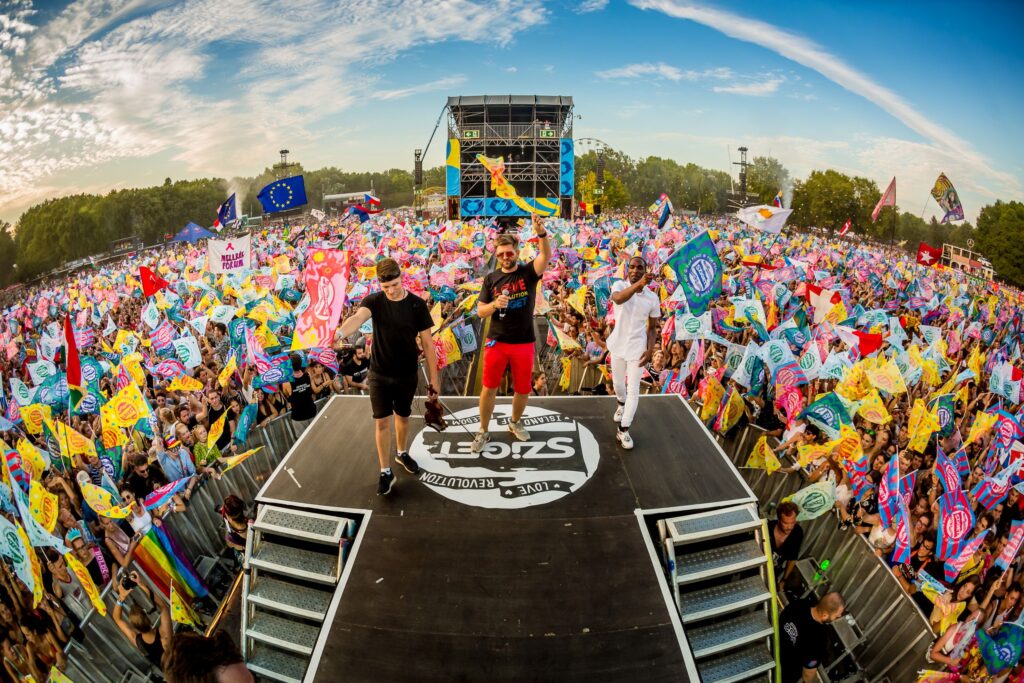
Photo: Péter Kalló
Regarding the mass in Lovár, he said: he tried to make it popular in the noblest sense of the word. A few years ago, he was able to play his own work in front of seventy thousand people on the Sziget Main Stage. How important is popularity to you?
Unfortunately, it is very important, now more and more so. Classical musicians should also be present on various media platforms such as Facebook, Instagram, TikTok. Anyone who isn’t on Facebook, and whose every success isn’t shared, almost doesn’t exist. So this is very important. Success and popularity are also important to me. I used to want it a lot more when I was in high school, now I feel like I’m close to reaching the lowest rung of the popularity ladder, but it’s only up from here and who knows where it ends.
What would absolute success mean?
Run in the west. To be world famous.
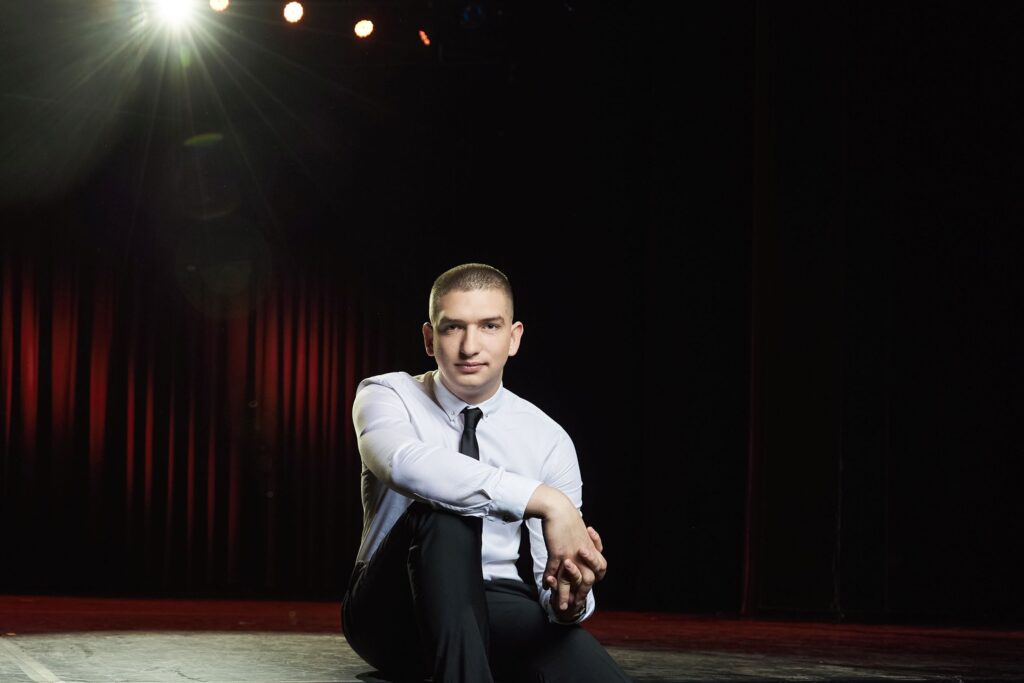
Photo: Kondella Misi Photography
When your Erasmus semester abroad is over, is your long-term plan to stay abroad and build a career there?
First of all, I want to be there for half a year, if it comes together. After that, I have to come back for half a year, because there is a complex final exam in the fourth semester of the doctoral program, and there is a lot to do. However, I want to go to Berlin afterwards. As I calculate the lessons and courses, it can be solved so that I can graduate from a university there and do my doctorate here in the meantime. The Hungarian mentality usually sends the best from the country. Because there isn’t the reception it should be. Béla Bartók also felt that it was not his life to fight with the Hungarian people here, and he explained to them that what he wrote was very good, and many did not even like it. He went to America and became world famous. György Ligeti left in the same way, in ’56. Until then, he was a harmony teacher at the Academy of Music, as far as I know. When he went out West, he soon became world famous. This is how it works, unfortunately, there is no other recipe. I don’t think you can become world famous from here.
I really liked what he said in an interview: every half century a Hungarian composer has the opportunity to become world famous, and after Béla Bartók and György Ligeti, now, it seems, the opportunity has been given again. However, becoming world famous from here probably doesn’t happen every fifty years.
It could be every thousand years, if at all.
You always speak very modestly about your own achievements, although few people can say about themselves at the age of twenty-five what you can. The Junior Príma award, the Andor Neszlényi award, and numerous domestic and international victories all prove his success.
The Junior Príma award is the first major feedback that is not a competition result, that I did not win in a competition, but that was given for my work so far. Feedback that the path I’m on is good.
He stated that he constantly has melodies and noises in his head, and writes musical pieces in his head. What is your method of storing them until you have a chance to record them?
If I have a notebook with me, I write down what I feel is a good idea. But I tend to say that what has to stay, stays in the brain. And if it doesn’t stay, it means that there is a better solution and you have to find it.
Before the presentation of Fusion, can the audience see and hear it somewhere during the summer?
On July 29, I will perform in the Valley of the Arts. We wrote music for a silent film with two of my good friends, film composer Milán Hodován and cellist Péter Friderikusz. By the way, I will be in Prague for a competition between July 23rd and August 1st. This will be achieved by the fact that the competition program will be held outside in a few days, then I will come home for this performance, and then the next day I will go back to the award ceremony.
We already know that he would welcome a manager with open arms. Would you be open to sponsorship?
Yes, I once had a performance in Salgótarján, the costs of which were paid for by local companies. It would be good to strengthen this line..
In that case, I recommend that you look for the Off-White hoodie manufacturer regarding the logo of the winning piece.
(Laughs.) Not a bad idea. Thanks.
————
To write our articles, we use the Alrite speech recognition (speech-to-text) solution.
Opening image: Patrik Oláh (photo: Géza Oravecz)
The original article is available at: https://www.artisbusiness.hu/hu/hireink/a-zeneszerzes-szerintem-nem-is-csupan-egy-hanem-ket-foallas-1676/
The article can be downloaded: „A zeneszerzés szerintem nem is csupán egy, hanem két főállás” _ artisbusiness.hu


